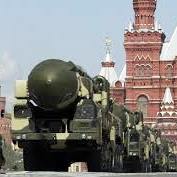It is common to portray the European Union (and the United States) as unwaveringly in support of isolating Belarus. The reality is somewhat different. Over the last two decades, EU-Belarusian relations have been cyclical. In the most notable cycle, a cooling in the first half of the 2000s was followed by a rapprochement that peaked over 2008-2010, when the EU had high expectations of successful engagement and offered Belarus generous financial assistance. This optimism did not survive the wave of political repressions that followed Belarus’ 2010 presidential election, however, when the West sanctioned 200 officials and several companies (though the economic effects of the sanctions were negligible and probably intentionally so).
Since then, a new cycle has begun (see Table 1). Belarus is a full-fledged member of the EU’s Eastern Partnership (EaP) initiative, designed to boost engagement with its post-Soviet neighbors. From the start of 2013, the EU undertook attempts to achieve a new normalization with Belarus in the context of Lithuania’s EU presidency (a six-month revolving post) and the Vilnius EaP summit. The Ukraine conflict has further boosted Brussels’ interest in stepping up its interaction with Minsk, while paying purposefully less attention to the country’s domestic situation.
The EU’s rediscovered “pragmatism” is a reaction to the changing situation.” First, it is evident that in light of Moscow’s actions in Ukraine the Belarusian leadership has become concerned about the sovereignty of its country and is seeking some political distance from Russia. Second, the Russian economic slowdown and shrinking of business opportunities in the post-Soviet space have increased Belarus’ need to secure access to international finance.
However, this is no guarantee that Minsk will respond in ways that are to the EU’s liking, either by way of internal liberalization or a shift in its foreign policy balance. If the EU moves away from its earlier, normative approach toward Belarus, making unilateral concessions on issues of human rights and political freedoms, it risks legitimizing the results of the approaching October 2015 presidential election—a preordained sixth-term victory for incumbent Alexander Lukashenko. This will be a clear diplomatic success for Minsk. In the end, the EU will be able to speak about a normalization in relations, but differences on issues of principle will continually surface and the EU will find it difficult to defend its position.









